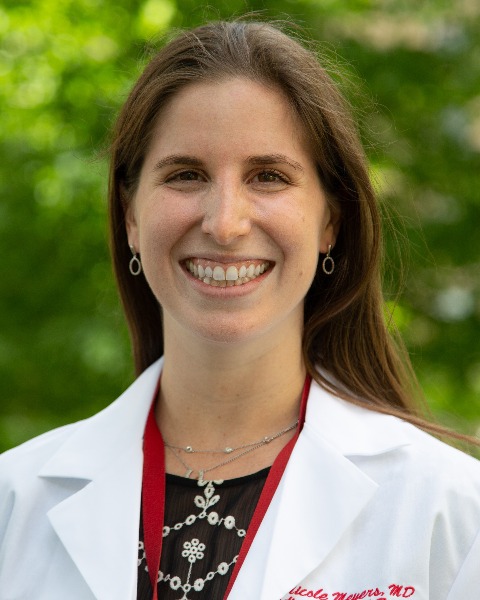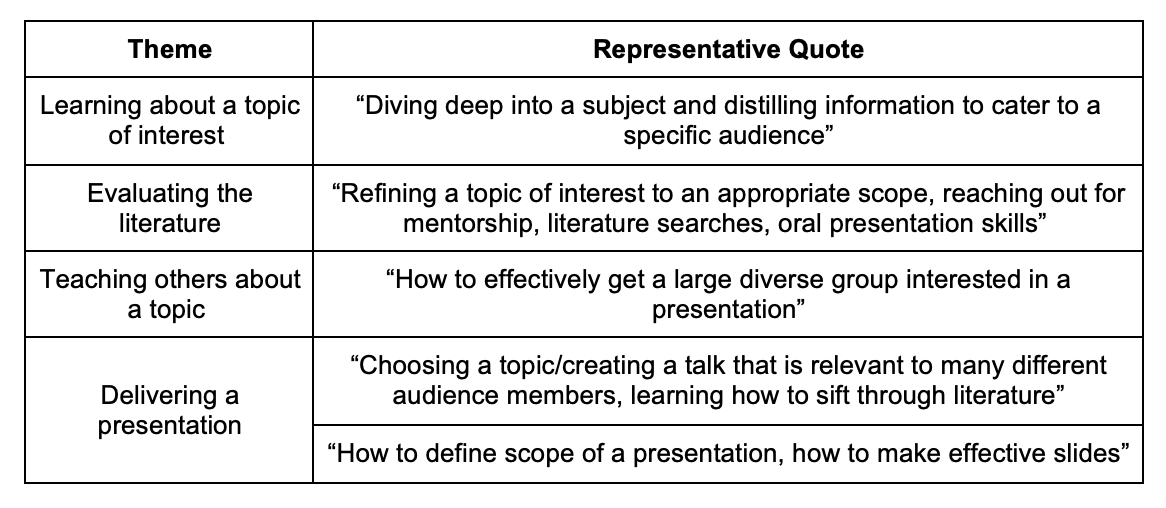Medical Education: Resident
Medical Education 13: Resident 4
481 - RAMPing up resident presentation skills: Evaluating the Resident Academic Mentored Project curricula in developing resident skills in preparing and delivering pediatric department-wide presentations
Monday, May 1, 2023
9:30 AM - 11:30 AM ET
Poster Number: 481
Publication Number: 481.421
Publication Number: 481.421
Nicole K. Meyers, New York Presbyterian Hospital - Columbia University Medical Center, New York, NY, United States; Micha Thompson, New York Prebyterian Hospital - Columbia University Medical Center, New York, NY, United States; Marina Catallozzi, Columbia University Irving Medical Center, New York, NY, United States; Suzanne Friedman, Columbia University Vagelos College of Physicians and Surgeons, New York, NY, United States

Nicole K. Meyers, MD (she/her/hers)
Pediatric Chief Resident
New York Presbyterian Hospital - Columbia University Medical Center
New York, New York, United States
Presenting Author(s)
Background: As part of the longitudinal Resident Academic Mentored Projects (RAMP) and Resident as Teacher curricula, 3rd year residents are required to deliver a department-wide ‘Chief of Service’ (COS) presentation. With the goal of gaining expertise in the topic content, and building oral presentation skills, residents are guided by faculty mentors through the process of selecting a topic, identifying a content mentor, performing a literature review, preparing slides, practicing, and ultimately delivering the presentation. There is a dearth of literature on the preparation and delivery of large-scale academic presentations by residents, despite the importance of developing these skills.
Objective: To improve the overall process and identify areas for improvement for this aspect of the residency curriculum, we assessed perceived benefits and gaps in the overall COS experience.
Design/Methods: A 19-question Qualtrics survey was distributed to 3rd year pediatric residents who had completed their COS in the 2021-22 academic year. Questions varied and included items with a Likert scale, multiple-choice, yes/no, and open-ended responses. Topics ranged from identifying the major learning points throughout the process to evaluating the feedback received both during and after the presentation.
Results: Sixty-eight percent of residents (17/25) responded and identified a number of goals that were met during the process, including learning about a topic of interest, teaching others about a topic, evaluating the literature, and delivering a presentation (Table 1). The majority (88%) of respondents said the COS experience met their goals and 93% reported receiving feedback from mentors during the process of COS development, with all residents reporting that they utilized most or all of the feedback to improve their final presentation. However, only 47% received feedback after the COS with the majority (87%) saying they would have benefited from this component.
Conclusion(s): The preparation and delivery of a COS presentation was perceived by residents favorably and was found to have accomplished its intended purpose. The development of skills in and the delivery of formal presentations are important educational and academic experiences that residency programs can adopt to encourage presentation skill development. Based on the identified gap in receipt of feedback, we assembled a COS feedback committee consisting of faculty members. The committee adapted an existing evaluation rubric that now allows for all resident COS presenters to receive standardized feedback.

